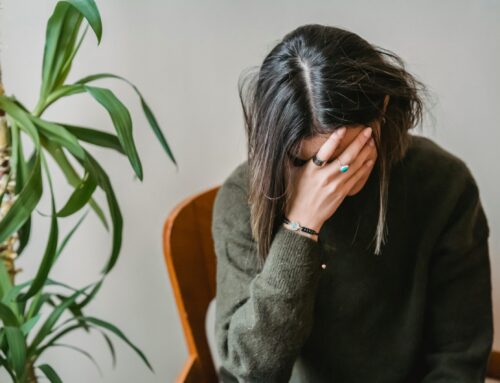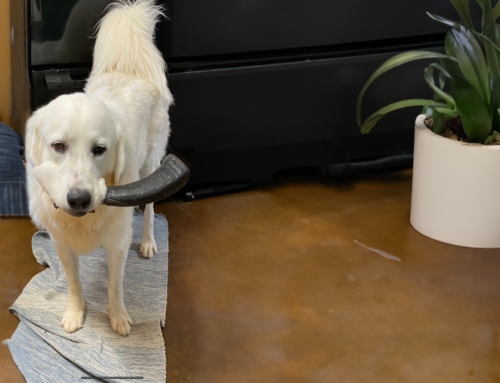Major Depressive Disorder, also known as depression, is incredibly common. Unfortunately, it also often goes untreated and unaddressed. At Solace Solutions, we want to change the stigma around mental health, so let’s explore how depression is defined, depression symptoms, and the different types of depression treatment.
What is Considered Major Depression?
The DSM-5 (Diagnostic and Statistical Manual of Mental Disorders, 5th edition) has specific criteria for someone to be diagnosed with depression. You must have a certain amount of symptoms for over two weeks for it to be “officially” diagnosable. (Of course, you can show depression symptoms without meeting the full criteria for depression, you just may go undiagnosed.)
What are the Symptoms of Depression?

There are a few symptoms to pay attention to when it comes to figuring out if you have depression. Here are a few to look out for:
- Sadness, numbness, feeling empty or unmoved
- Random emotional outbursts (either angry or emotional)
- Little to no interest in doing things usually enjoyed or doing anything at all
- Irregular sleep: sleeping too much or too little
- Change in appetite: eating a lot or not feeling hungry at all
- Increased anxiety
- Negative feelings about yourself like shame, guilt, self-hatred or dislike
- Trouble with focusing, learning, thinking, or memory
- Low-energy and lethargy
- Increased social isolation, not wanting to spend time with others
- Physical problems with no known cause like migraines or body aches
- Thoughts of suicide or self-harm
According to the DSM-5, you must have five or more of these symptoms for over 2 weeks to be considered depressed.
What Causes Depression Symptoms?
There is no singular cause, but it is believed to be a combination of factors like genetics, substance use, health/illness, and personality. If you want to learn more about the four major causes of depression, click here.
Depression can also be caused by lifestyle factors like diet and health.
How Diet and Health Impact Depression Symptoms
Diet
Due to our bodies relying on nutrition to keep us functioning, bad diets can leave you feeling…bad! Oversaturated fats, sugary snacks, and dehydration put extra stress on your body. Additionally, if your body doesn’t get the nutrition it needs, it is unable to regulate the chemicals in your brain making you feel down in the dumps. Want to learn 9 easy foods that boost your mood? Click here!
Health
The way you take care of your body outside of nutrition also impacts your mental wellbeing. Lack of sunshine, exercise, and good sleep can leave you feeling bummed out. Ideally, you want to move your body every day, spend several hours a week in nature, and aim for 8+ hours of sleep a night.
How do I know if I have depression?

If the depression symptoms above sounded all too familiar to you, there are two resources you can check out which help you self-assess.
BDI – Beck’s Depression Inventory
This questionnaire involves 21 questions to help you evaluate the severity of your depression. Be mindful that this is not an official diagnosis, but it can give you insight into how much your depression is impacting you. Access it here.
PHQ-9 – Patient Health Questionnaire
This is another self-assessment resource with 9 questions that asks about symptoms specifically experienced within the past 2 weeks and asks you to rate how often these symptoms are occurring for you. You can access it here.
What are the Main Forms of Depression Treatment?
There are several approaches when it comes to depression treatment based on what may be causing it!
If your depression is caused by trauma, IFS or EMDR can be effective forms of depression counseling.
IFS – Internal Family Systems
This type of depression counseling helps you get conscious of the unconscious thoughts that are making you feel depressed. IFS is based on the belief that our internal world dictates our external world so when we can adjust our inner beliefs, our reality shifts, helping us feel happier and healthier.
EMDR – Eye Movement Desensitization and Reprocessing
EMDR helps to reduce the emotional impact of traumatic events by keeping your brain in the present moment while recalling the experience. By making sure both sides of the body are being used (either through eye movement or tapping), the experience can be processed and become an uncharged memory rather than a triggering one.
Holistic Treatment
This type of treatment focuses on several aspects of wellbeing to address depression from different angles. Holistic treatment can include dietary changes, meditation, exercise, and better sleep habits. In other words, holistic treatment looks at lifestyle factors that may be impacting your depression and often pairs better habits with therapy to address all needs rather than just treating some symptoms.
CBT – Cognitive Behavioral Therapy

CBT helps you identify if your depression stems from one of the following negative core beliefs:
- I am a failure
- I’m not good enough
- I’m not trustworthy
- I don’t belong
- I’m unworthy
- I’m unloveable
While these core beliefs are untrue, we often repeat them to ourselves over and over again until we actually start to believe them. In order to disrupt these thought patterns, CBT helps others identify which negative thoughts they struggle with and uncover where these thoughts originate from. Once you uncover the beliefs, you can replace them with positive affirmations.
Medication
For severe cases, medication prescribed by a professional can help reduce depression symptoms. Sometimes this can include both prescription medication and complementary/holistic medicine.
Interested in Treatment for your Depression Symptoms in Colorado Springs, CO
At Solace Solutions we use holistic therapy techniques as well as use CBT to help people work through their depression.
As you can see, depression is complex. However, there are many ways to treat it! If you or someone you know is struggling with depression, don’t hesitate to reach out for help! Depression doesn’t mean there is anything wrong with you and the sooner you start working through it with a depression therapist, the sooner you can find techniques that help you feel better.
Follow these steps to start finding the techniques that work for you in depression treatment by following these steps.
- Reach out for a free consultation
- Schedule your first appointment for depression counseling
- Start overcoming your depression symptoms
Other Holistic Therapy Options we Offer in Colorado Springs, CO
At Solace Solutions we have a variety of holistic therapy options both in person in Colorado Springs and online throughout Colorado. This includes counseling for individuals, couples, and families. For individuals, this includes anxiety treatment, trauma therapy, PTSD treatment, and teen counseling. In addition to sex offense evaluations.





